Stiglitz has harsh words for US policy makers on China
Updated: 2014-12-25 05:06
By Chen Weihua(China Daily USA)
|
||||||||
Joseph Stiglitz, one of the world's most influential economists today, sounded some serious warnings to US policy and law makers in his article China Century in the latest Vanity Fair magazine.
The Nobel Prize laureate in economics, who has visited China many times, said that 2014 was the last year in which the US could claim to be the world's largest economic power.
"China enters 2015 in the top position, where it will likely remain for a very long time, if not forever. In doing so, it returns to the position it held through most of human history," he wrote.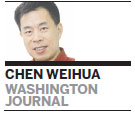
A recent report by the International Monetary Fund said when measuring national economic output in real terms of goods and services, China will produce $17.6 trillion this year, comparedto the $17.4 trillion for the US.
Stiglitz observed different attitudes of the two nations on being No 1. "Americans want very much to be No 1—we enjoy having that status. In contrast, China is not so eager," he wrote.
Stiglitz believes that China did not want to stick its head above the parapet because being No 1 comes with a cost, citing the example of paying more to support global bodies such as the United Nations.He also pointed out that China understands full well the US' psychological preoccupation with being No 1, and was deeply worried about what the US reaction would be when it no longer was.
Views among Chinese are not totally agreeable with Stiglitz's. Most Chinese may only recognize that their country is No 1 in population, although that might be overtaken by India in 2028.
For many Chinese, being No 1 does not mean that much. Just as China's Vice-Premier Wang Yang said last week in Chicago at the 25th session of the China-US Joint Commission on Commerce and Trade (JCCT) that anything multiplied by 1.3 billion people is huge while anything divided by 1.3 billion is tiny. Wang was not shy in saying that the US will continue to be the most powerful nation and continue to lead the world.
The reality is that China is still a developing country, with per capita GDP ranked 89th in the world according to IMF and 85th according to the World Bank, behind Iraq and South Africa.
Stiglitz noted that the US had made two critical mistakes since the World War II. "First, it inferred that its triumph meant a triumph for everything it stood for. But in much of the Third World, concerns about poverty.—.and the economic rights that had long been advocated by the left.—.remained paramount," he wrote.
"The second mistake was to use the short period of its unilateral dominance, between the fall of the Berlin Wall and the fall of Lehman Brothers, to pursue its own narrow economic interests.—.or, more accurately, the economic interests of its multi-nationals, including its big bank.—.rather than to create a new, stable world order."
Stiglitz cited the example of US talking about free and fair trade but insisting on subsidies for its rich farmers. "(It) has cast the US as hypocritical and self-serving," he wrote. Other examples included the US wrong and hazardous response during the East Asia crisis in the late 1990s, something Stiglitzclaims that"a decade and a half after the East Asia crisis, the mere mention of the US role can prompt angry accusations and charges of hypocrisy in Asian capitals."
Contrary to the concern of many Americans, Stiglitz argues that China's growth is complementary to that of the US. "If it grows faster, it will buy more of our goods, and we will prosper," he said.
Stiglitz warned that if the US takes actions based on the idea that the world economy is a zero-sum game, that would not only be a "wrong kind of wake-up call" but "ultimately prove futile." While many Chinese still see the US-led Trans-Pacific Partnership (TPP) as a containment scheme aimed at China, Stiglitz also suggests that the TPP looks like an attempt to cut China out of the thriving Asia supply chain.
The economist criticized the US for trying to block China from carrying out its global responsibility, such as taking a larger role in international institutions. The US Congress has blocked the IMF reforms that will give China and other emerging economies a bigger say.
He also criticized the US for not supporting China's efforts in assisting developing nations build their infrastructure, such as the effort to create the Asia Infrastructure Fund.
"We should take this moment, as China becomes the world's largest economy, to ‘pivot' our foreign policy away from containment," he wrote.
Stiglitz concluded that a new global political and economic order is emerging, the result of new economic realities.
"We cannot change these economic realities. But if we respond to them in the wrong way, we risk a backlash that will result in either a dysfunctional global system or a global order that is distinctly not what we would have wanted," he wrote.
Contact the writer at chenweihua@chinadailyusa.com

 Across Canada Dec 25
Across Canada Dec 25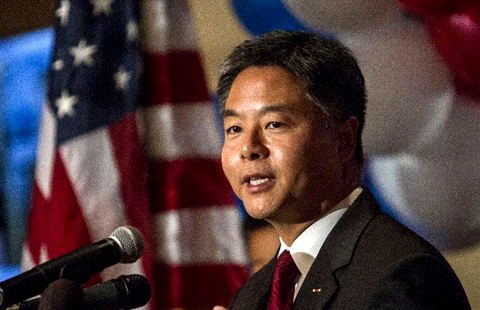
 Overseas Chinese make their mark in elections
Overseas Chinese make their mark in elections
 China praises submarine crew's emergency handling
China praises submarine crew's emergency handling
 Watchdogs to be deployed in top central govt bodies
Watchdogs to be deployed in top central govt bodies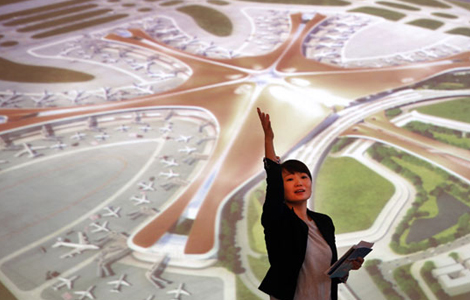
 New Beijing airport to be operational in 5 years
New Beijing airport to be operational in 5 years
 Christmas mood in the air across China
Christmas mood in the air across China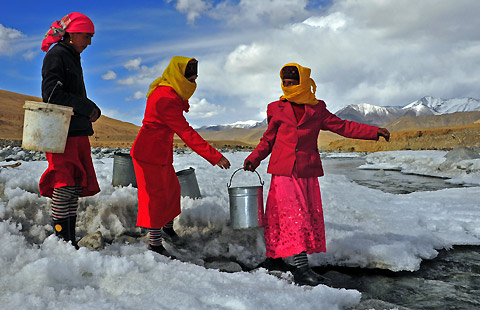
 Ethnic Tajik life through the lens of a solider
Ethnic Tajik life through the lens of a solider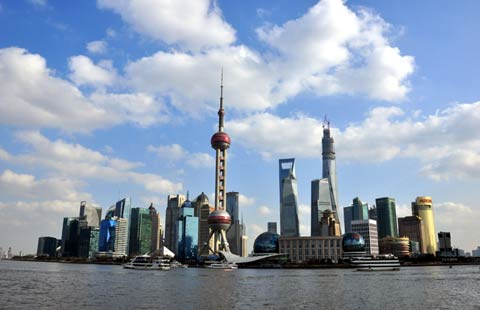
 Top 10 international financial centers
Top 10 international financial centers
Most Viewed
Editor's Picks

|

|

|

|

|
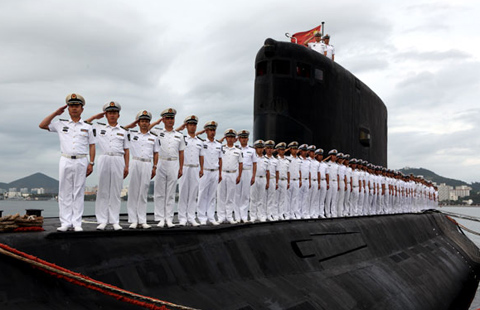
|
Today's Top News
Florida lobsters find a market in China
Stiglitz has harsh words for US policy makers on China
Uber hits speed bumps in China
China, US look at assessing food quality
Ex-President George H.W. Bush taken to hospital
NY steps up to aid slain officers' kin
Spree killer seized in south China
Jackie Chan says he did not use connections to help son
US Weekly

|

|







